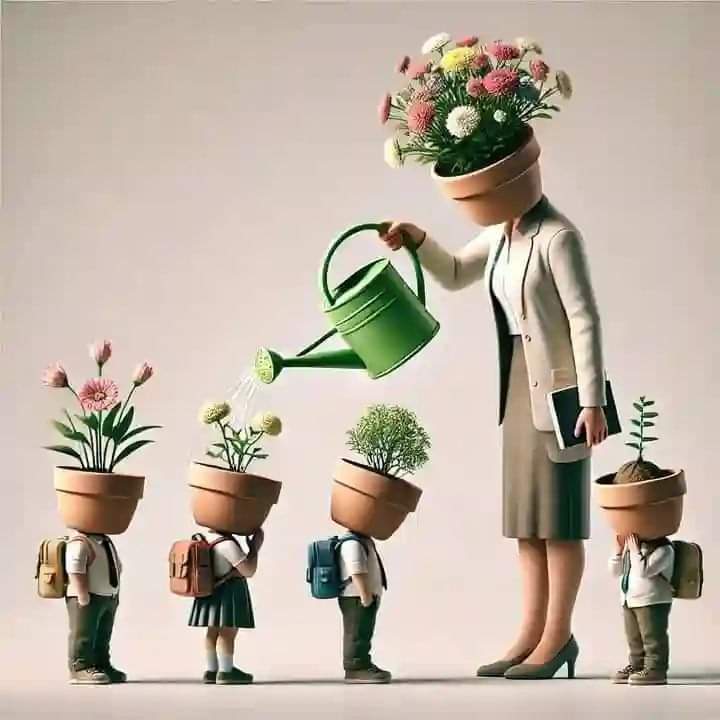Loving our Children Righteously
It is easy to overlook the most vulnerable among us our children. They are not only the future of our societies but also the most essential part of our present. Why do children matter? The answer is simple yet profound. Children embody hope, potential, and change. They remind us of the innocence of life and the possibility of a better world. Thus, loving children rightly is not just a responsibility; it’s a necessity for a flourishing society. The reality is that how we nurture our children today will shape their future and, in effect, our society’s future.
Emotional Support: Children require an emotional foundation that allows them to thrive. This includes validation of their feelings and creating a safe space for them to express themselves. Practicing active listening and empathy helps children feel valued and understood, cultivating their confidence and social skills.
Physical Care: Love for children also translates into meeting their basic physical needs—nutritious food, proper clothing, and safe living conditions. In Nigeria and many parts of the world, many families face economic challenges that hinder their ability to provide for their children. Community support programs and family structures that prioritize the well-being of children can alleviate some of these burdens.
Intellectual Stimulation: Education is a form of love. Encouraging curiosity and a love for learning sets the foundation for lifelong growth. Choosing to invest time in reading, guiding homework sessions, and engaging in intellectually stimulating conversations provides the right support many children need to excel.
Moral Guidance: Teaching children values such as kindness, respect, and integrity shapes their character. This moral compass helps them navigate the complexities of life and contributes to building a community based on mutual respect and understanding.
Righteous Ways to Love Children in Nigeria and Beyond
The idea of love transcends borders and cultures, but its expression can differ;
1. Institutional and Community Support: Governments and institutions can implement policies that support families and protect children’s rights. In Nigeria, initiatives that provide free education, healthcare, and nutritional programs can significantly improve children’s living conditions. Community centers that offer after-school programs and counseling services can also play a vital role.
2. Fostering Inclusivity: Children come from diverse backgrounds and experiences. Teaching inclusivity and celebrating diversity can foster empathy and understanding. Parents and caregivers should model openness and acceptance, ensuring children feel a sense of belonging regardless of their background.
3. Promoting Positive Parenting: In many Nigerian cultures, there’s a strong traditional aspect of parenting that emphasizes communal responsibility. This can be merged with modern principles of parenting that prioritize emotional intelligence, such as spending quality time with children and using positive reinforcement rather than punishment.
4. Encouraging Play and Leisure: Play is crucial for a child’s development. In Nigeria, traditional games and outdoor activities are often overshadowed by technological distractions. Encouraging playtime, both alone and with others, can enhance their skills and foster creativity. The global community too should recognize that well-rounded development comes from balancing academics with play.
5. Engaging in Community Programs: Parents can involve themselves in programs that uplift the community. Whether through volunteering at local schools, participating in community clean-up campaigns, or supporting orphanages, such actions can instill a sense of responsibility in their children while teaching the value of community service.
6. Modeling Behavior: One of the most powerful ways to love children rightly is by setting an example. Children learn from watching adults. So when adults display kindness, patience, and responsibility, children are more likely to adopt these values as their own. Practicing kindness in everyday interactions teaches children not only to be loving but also to expect loving behavior from others.
Indeed Children are the seeds from which societies grow. Investing in their emotional, physical, intellectual, and moral development is critical for creating a brighter future. In Nigeria and around the globe, we must commit to loving children rightly, creating structures and systems that support their growth, and communities that celebrate their contributions. Each righteous act fosters not only individual growth but also a collective move towards a more compassionate and understanding world. The way we treat our children influences the kind of adults they become and, ultimately, the world we live in. Let us nurture them well; they deserve nothing less.


